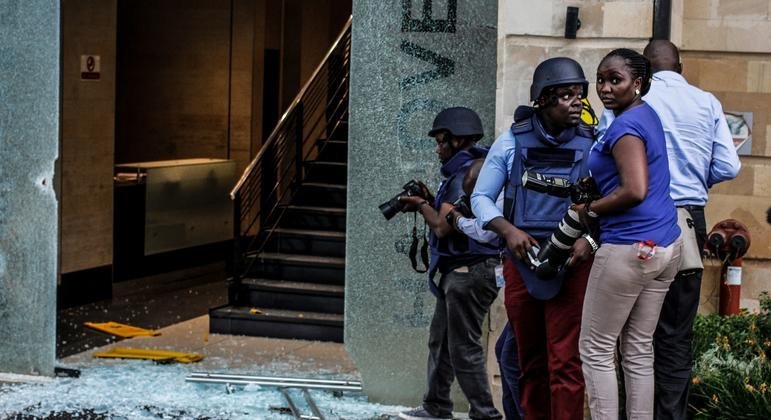The dangers faced by journalists around the world have been highlighted on the International Day to End Impunity for Crimes against Journalists, which falls on November 2nd each year. This day serves as a reminder of the risks journalists face in their line of work, including threats to their lives. In 2024, the International Day coincided with the release of the UNESCO Director-General’s Report on the Safety of Journalists and the Issue of Impunity, which revealed a 38% increase in the number of journalist killings compared to the previous study.
UN Secretary-General António Guterres emphasized the importance of protecting journalists and holding perpetrators of crimes against them accountable in his message for the Day. He pointed out that Gaza has seen the highest number of killings of journalists and media workers in any war in decades, calling on governments to take urgent steps to ensure the safety of journalists, investigate crimes against them, and prosecute those responsible.
The war in Gaza was a prominent topic at the 2024 UN International Media Seminar on Peace in the Middle East, an event that aims to enhance dialogue and understanding between media practitioners and support a peaceful resolution to the Israeli-Palestinian conflict. Mr. Guterres highlighted the unprecedented level of journalist killings in Gaza during the conflict, noting that the ban on international journalists in the region further hampers the truth from being reported.
Cheikh Niang, Chairman of the UN Committee on the Inalienable Rights of the Palestinian People and the Permanent Representative of Senegal to the United Nations, Guilherme Canela, Chief of Section for Freedom of Expression and Safety of Journalists at UNESCO, and Mohammad Ali Alnsour, Chief of the Middle East and North Africa Section at the Office of the United Nations High Commissioner for Human Rights (OHCHR), all shared their insights on the situation in Gaza during the Seminar.
Cheikh Niang highlighted the severe restrictions on information access in Gaza following the events of October 7th, 2023, when Palestinian militants attacked Israel and faced a devastating response in Gaza. He noted that over 130 Palestinian journalists had been killed by Israeli forces in the past 380 days, silencing voices that were reporting on possible war crimes and the humanitarian crisis in the region.
Guilherme Canela emphasized the importance of protecting journalists and ensuring their safety in conflict zones like Gaza, where they face significant risks while carrying out their work. He stressed the need for governments and international organizations to take concrete actions to protect journalists and prevent impunity for crimes committed against them.
Mohammad Ali Alnsour echoed the calls for accountability for crimes against journalists and emphasized the role of the OHCHR in monitoring and documenting human rights violations in conflict zones. He highlighted the need for thorough investigations into crimes against journalists and for the perpetrators to be brought to justice to prevent further attacks on media workers.
Overall, the discussions at the 2024 UN International Media Seminar on Peace in the Middle East shed light on the challenges faced by journalists in conflict zones like Gaza and the urgent need for action to protect their safety and ensure that they can continue their essential work without fear of reprisals. The international community must come together to support journalists and uphold their right to report freely and without fear of violence or persecution.









